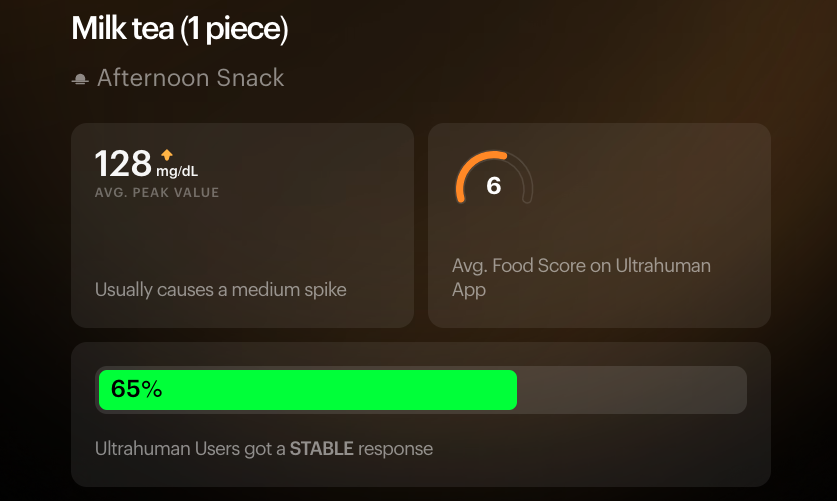Tea with milk is a global favorite – but how does it affect blood sugar? Ultrahuman data feeds into the biggest global database of glucose responses, and it’s good news for tea drinkers.
Ultrahuman’s OGDb data indicates that a standard cup of milk tea can lead to an average glucose peak of 128 mg/dL and gets a stable response from 65% of users. You can see that data below – and it’s important to factor in that some people may sweeten their tea and not label it, so overall, tea with milk is stable for most people.
But tea with milk can cause blood sugar to rise in some people, so it’s important to understand why.
The impact of milk tea on blood sugar

Caffeine may trigger a cortisol response in some people, which can affect how the body handles glucose. Milk contains lactose, a natural sugar that’s absorbed quickly. If you add sugar or syrup, or buy something from a store that has already been sweetened, it can cause blood sugar to rise sharply.
If you’re making milk tea at home, there are simple ways to improve it.
Opting for unsweetened plant-based milk, such as almond or soy, helps avoid the blood sugar spike from lactose.
Including fiber-rich snacks like almonds or seeds alongside your milk tea can slow down glucose absorption. Consuming your milk tea after a balanced meal may also reduce its impact on your blood sugar levels.
For those with prediabetes or diabetes, or anyone looking to improve metabolic health, making these changes can help you keep enjoying milk tea without the unnecessary blood sugar hit.
Conclusion
For most people, tea with milk doesn’t raise blood sugar in a meaningful way. But if you’re being cautious, opt for a plant-based milk to minimize the impact of lactose on your blood sugar levels.
Using a CGM can help you to figure out the impact of different foods on your body.








